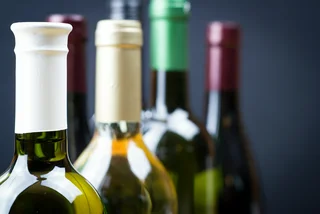Czech inspectors are cracking down on fake prosecco being sold in restaurants, wine bars, and supermarkets, warning consumers to be cautious.
Pavel Kopřiva, a spokesperson for the State Agricultural and Food Inspection, said in a press release that some operators are misleading customers by falsely labeling wines as prosecco when they do not meet the necessary requirements.
PARTNER ARTICLE
Prosecco is highly popular among Czech consumers, but it can only be labeled as such if it adheres to specific conditions.
These conditions entail using grapes from designated Italian provinces, such as Belluno, Gorizia, and Venice, and producing and bottling the wine within those provinces. The drink must also be filled in glass bottles or demijohns with a maximum volume of 60 liters.
"The term 'Prosecco' is registered within the European Union as a so-called protected designation of origin (PDO)," writes the food inspectorate. "PDOs are designations of exceptional agricultural products or foodstuffs from a certain region or place, the quality or properties of which are determined by a special geographical environment," it says.
Prosecco is legally protected against counterfeit products that do not meet the PDO "Prosecco" specification, as well as against any imitation. (French Champagne is also protected). The protected designation of origin, which also applies within the EU, ensures that agricultural products or foodstuffs from specific regions meet certain quality and geographical criteria.
Selling any other wines labeled as prosecco is considered counterfeiting and misleading to customers.
Consumers in the Czech Republic who enjoy drinking prosecco should be vigilant and take precautions to ensure they are purchasing authentic products. Here are some tips to determine whether a wine is genuinely prosecco:
- The food inspectorate advises that if a consumer orders prosecco in a restaurant, it must be poured from a glass bottle, and if they wish to consume a whole bottle, it should be opened in front of them.
- The grapes for production (predominantly represented by the Glera cider variety) must come from an area comprising the following Italian provinces: Belluno, Gorizia, Padua, Pordenone, Treviso, Trieste, Venezia (Venice), and Vicenza.
- The production and subsequent bottling of the wines must also take place in one of these provinces.
- Packaging and bottle type: Prosecco should be filled in glass bottles or demijohns with a maximum volume of 60 liters. Be wary of any other types of packaging.
- Purchase from reputable sources: Buy prosecco from trusted wine shops, supermarkets, or authorized distributors to minimize the risk of purchasing counterfeit products.












 Reading time: 2 minutes
Reading time: 2 minutes 




























